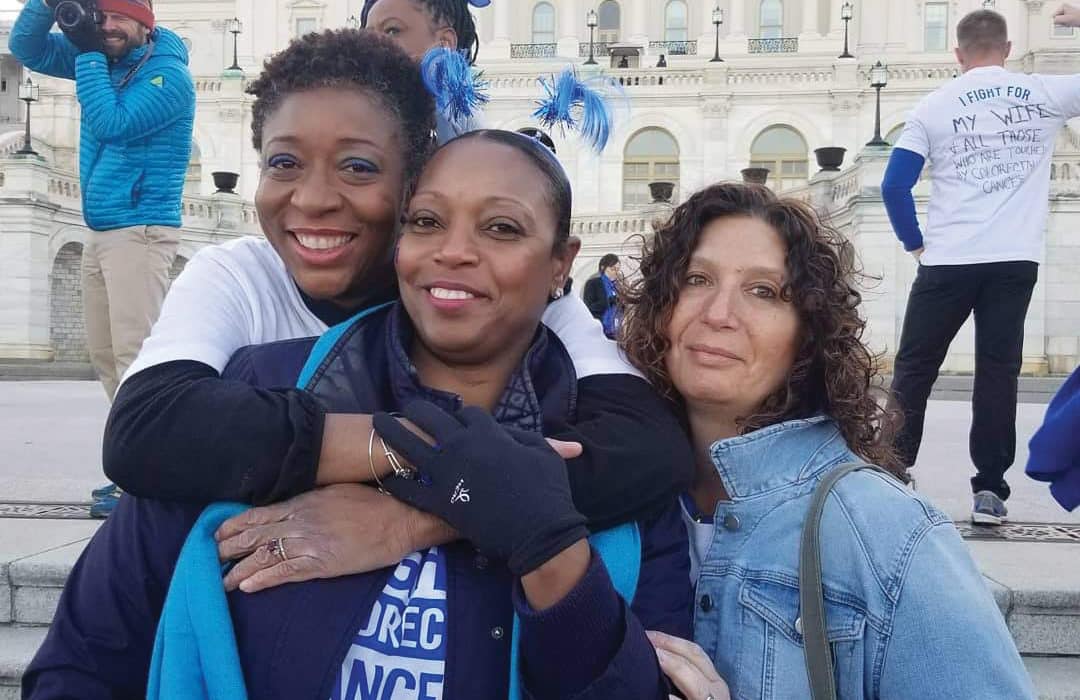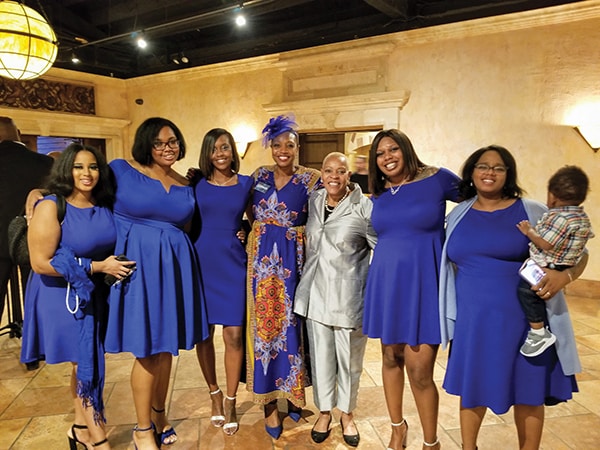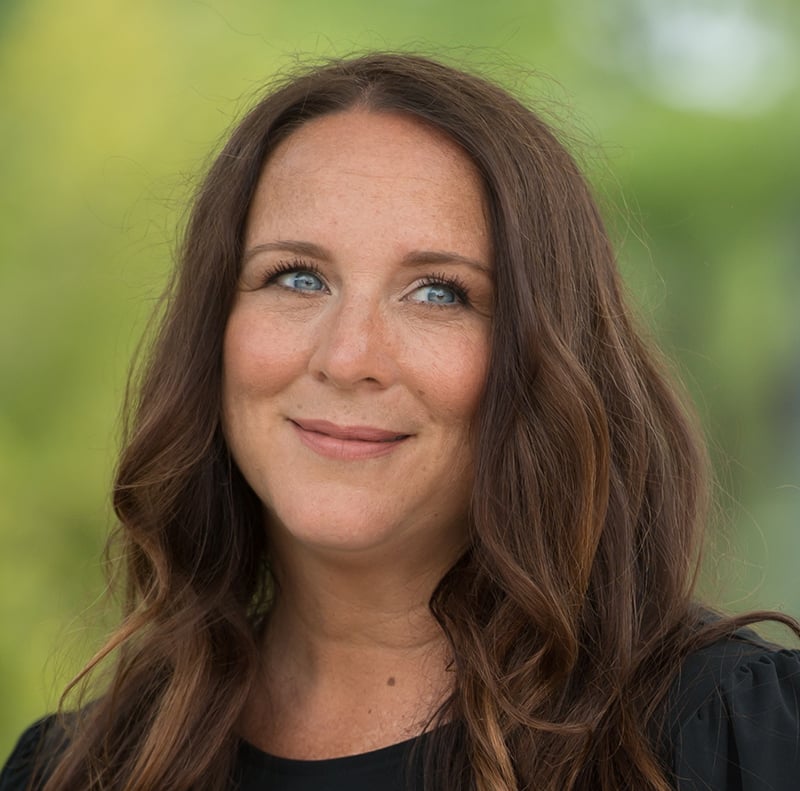Intervening early can halt colorectal cancer
In 2003, Bronzeville resident Candace Henley, then 35, was experiencing on-and-off symptoms of diarrhea, constipation, nausea, and a low blood count throughout the year. Her first two trips to the emergency room (ER) didn’t result in any answers.
It wasn’t until after her third trip to the ER — following six months of being misdiagnosed — that she received an unexpected diagnosis. She had colorectal cancer.

After a colonoscopy detected a tumor, Henley underwent emergency surgery to remove her entire large intestine, followed by one round of radiation.
Henley is one of a growing number of people under age 50 with colorectal cancer. And as a Black adult, she’s part of a population that is about 20% more likely to get colorectal cancer and about 40% more likely to die from it than most other groups, according to the American Cancer Society (ACS).
Screening has meaning
Henley learned later that she had a family history of colorectal cancer. But while having relatives with colorectal cancer increases the risk of developing the disease, more than two-thirds of people with colorectal cancer don’t have a family history, the ACS says.
While rates of colorectal cancer are dropping among people age 65 and older, cases in people under 50 rose by about 2% per year from 2011 to 2016, according to the ACS.
The increase among young people, along with the higher rate among Black Americans, has provoked attention. Notably, Black Panther actor Chadwick Boseman died from colorectal cancer in 2020 at the age of 43.
In most cases, colorectal cancers grow slowly, so intervening early can make a difference. Guidelines have recently changed to encourage earlier screening through colonoscopy or stool analysis.
In October 2020, the U.S. Preventive Services Task Force (USPSTF) recommended that most Americans start screening for colorectal cancer at age 45 rather than 50, as previously suggested. Those over age 75 should discuss with their doctor whether they need a screening.
“Colon cancer is quite common. Roughly four people out of 100 will get colorectal cancer and ultimately succumb to it if we did no screening,” says Joshua Melson, MD, a gastroenterol-ogist at Rush University Medical Center.
Colon cancer is quite common. Roughly four people out of 100 will get colorectal cancer and ultimately succumb to it if we did no screening.”
Despite strong evidence that screening for colorectal cancer is effective, about a quarter of people 50 to 75 years old have never been screened, reports the USPSTF.
“Colorectal cancer develops from polyps that will, over time, develop into cancers. If you detect polyps early and remove them, you can prevent them from becoming cancer,” says Benjamin Shogan, MD, a gastrointestinal surgeon at UChicago Medicine.
Physicians use two types of screenings: colonoscopy and stool analysis. During a colonoscopy, a person is sedated as the physician inserts a long, flexible tube with a video camera into the rectum. If a physician detects polyps or other abnormal tissue, they can remove them through the scope.
Most people only need a colonoscopy once every 10 years, if everything looks normal. Yet, many Americans don’t get routine colonoscopies.
“If you get one at 45 and live to 85, then you’re not getting [a colonoscopy] that often,” Shogan says. “People think it’ll be uncomfortable or might hurt and may be afraid of what will be found. However, most people will say it wasn’t bad and the worst part was the prep the day before.”
People who don’t have rectal bleeding or a history of polyps, or who don’t have a first-degree relative under 60 with colorectal cancer, may be eligible for stool testing.
Stool tests need to be done more often than colonoscopy — every one to three years, depending on the test used. Stool analysis can detect signs of rectal bleedingor polyps. If test results are positive, you’ll need a follow-up colonoscopy.
Types of stool-based screening include fecal immunochemical testing, which checks for blood in the stool from the lower intestines, and a stool DNA test, which looks for abnormal sections of DNA from cancer or polyp cells and also checks for hidden blood.
Although a stool test is an option for some people, physicians generally prefer colonoscopies. “We don’t have evidence that stool testing really prevents cancer from happening,” Melson says. “It can detect some precancerous polyps, but not anywhere near the way colonoscopy does.”
Barriers to prevention
In 2014, the National Colorectal Cancer Roundtable set a goal to have 80% of adults age 50 and older regularly screened for colorectal cancer by 2018.
“If you look at it nationally, we weren’t able to get to that goal, though certain states did, like Massachusetts, and certainhealth systems did,” Melson says. In Illinois, 67% of adults age 50 and older had recent screenings in 2018, according to the ACS.
“Giving people a choice helps,” Melsonsays. “Still, there are disparities when youlook at rural areas and certain ethnicities.”
As a Black woman, Henley takes these disparities to heart.
“When I got sick, I had a great paying job as a bus driver with the CTA, and I had insurance. But I lost it all trying to fight cancer and survive it. I couldn’t return to my job because I was incontinent, and if I hit a bump, my system couldn’t handle it,” Henley says.
After using up her 401(k), she and her five daughters ended up homeless.
“I thought, if this happened to me and I was employed, imagine what it was doing to others in my community,” Henley says.

In 2015, she started the Blue Hat Foundation, a nonprofit organization with a mission to raise awareness of colorectal cancer and provide resources for free screenings for minority and medically underserved communities.
“The biggest issue for communities of color is access to care information and testing,” Henley says. “I wanted to educate minorities about colorectal cancer and do my best to provide screenings for free.”
So far, her foundation has helped more than 100 people through relationships Henley built with local hospitals, as well as with the Illinois Department of Public Health.
Many cancers can grow quickly or can be hard to detect. But for colorectal cancer, early screening can catch cases before they become serious. Prevention is key, Henley says.
“I advocate for people in minority and medically underserved communities
to talk with their doctor about screening and screening options that are best for them and [to talk] with their family members about health issues that run in the family,” Henley says. “My outcome could have been different had I done those things.”
Originally published in the Spring/Summer 2021 print issue.

Cathy Cassata specializes in health, mental health, and human behavior. She connects with readers in an insightful and engaging way.










